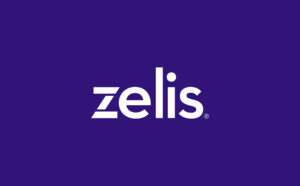We’re officially winding down the year, and with that comes a few things payers need to watch for to avoid overpayments and ensure payment accuracy. Many patients have now met their deductible, and that means an increase in elective procedures. And since more volume means more opportunity for overpayments, that makes it even more crucial for payers to be mindful of potential coding errors – more specifically, unbundled facility claims.
Understanding unbundled claims
Unbundling occurs when healthcare providers bill separate charges for procedures that should be billed under a single comprehensive code. This practice can lead to significant overpayments, financially affecting both providers and patients.
An analysis from some of Zelis’ recent claims reviewed provides a few interesting examples of unbundling:
- Tylenol® tablets: Instead of billing for a general medication fee, each Tylenol tablet administered during a patient’s stay was billed separately at $2.50 per tablet, leading to an inflated total cost.
- Blistex® application: Charging $7.50 each time Blistex was applied to the lips, despite its retail cost being only about $4.15 on Amazon for a 3-pack of Blistex medicated.
- Famotidine: Each pill billed at $4.50, whereas it costs about 30 cents per pill at a pharmacy.
- IV fluids: Nearly $150 for a single bag.
- Oxygen: More than $3,000 charged daily.
- Blood drawing: Billed at $27 per instance, not including the testing fees.
Each of the aforementioned line items should have fallen under the global charge, such as ICU services charges or room and board. Individually billing them results in a greatly inflated total claim amount. There were many more examples – some of them equally interesting – but I’ll spare you the full list. The point remains: the financial repercussions of unbundled claims are substantial.
Unbundled claims not only lead to higher out-of-pocket expenses for patients but also result in increased operational costs for healthcare providers as they spend resources identifying and correcting these discrepancies.
The importance of human insight to prevent unbundling
To address these challenges, many healthcare organizations are turning to advanced solutions that combine artificial intelligence (AI) with human expertise.
AI systems can be helpful in scanning large volumes of claims to detect patterns indicative of unbundling, but that alone is not enough. Human experts are necessary to verify AI findings, ensure accuracy and fill in gaps.
Let’s take this real-life scenario as an example: A patient was in the hospital for four and a half weeks after a traumatic brain injury, and they had a prolonged ICU stay. As expected, there was a large hospital bill – in this case, around $1.5 million. However, a large portion of the bill – almost $800,000 – was for supplies, services, and medications that should be considered part of ICU services. Included in the bill were items such as Tylenol, IV fluids, and oxygen as referenced above.
In another example, a patient was in the hospital for three weeks, including in the ICU, after having a cardiac arrest. The hospital bill was almost $1 million. A large portion of the bill – about $620,000 – was for supplies, services and medications that should be considered as part of ICU services. Among the charges was $1,000 each for two illicit drug screening tests even though the patient was in the hospital and receiving all medications from ICU personnel.
In these cases, what happens if the technology doesn’t recognize the unbundling pattern? Health plans risk overpaying by thousands of dollars. But when you leverage the dual power of both AI and human experts, human auditors can review claims more efficiently so that more legitimate claims are processed while erroneous ones are corrected.
AI can be invaluable at reducing the incidence of unbundled claims, but it’s most effective when human oversight is incorporated, especially on complex cases.
Equally important to note, the collaboration between technology and human expertise not only potentially enhances the quality of the claims review process but also can build trust with providers and patients when outcomes are accurate and fair.
Remain vigilant in preventing unbundling claims
The provider billing systems, chargemaster, and coders within any particular hospital system, office or billing company are always changing and, depending on the type of insurance, carrier and many other factors, medical billing is incredibly tricky and always evolving. It’s important to stay abreast of all the changes and dynamic evaluation of charges coming in on either a claim or itemized bill because things can change on a dime. No type of bill, procedure, hospital, or even member is immune from the potential of miscoding and overpaying for a service.
At the end of the day, this is about eliminating the confusion in healthcare and ensuring claims are accurate every time. As claims increase in the last two months of the year, stay vigilant about watching for unbundled claims.
If you’re concerned about overpayments on claims, be sure to check out Zelis Expert Claims Review® or Claims Editing. Both solutions can help helpful in catching unbundled facility claims.




